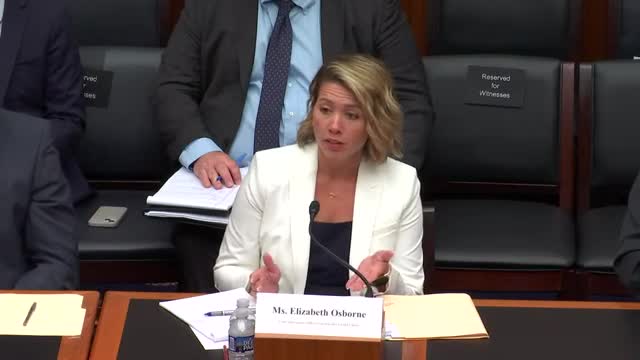AI Revolutionizes Lending and Home Ownership Opportunities
July 23, 2024 | Financial Services: House Committee, Standing Committees - House & Senate, Congressional Hearings Compilation

This article was created by AI summarizing key points discussed. AI makes mistakes, so for full details and context, please refer to the video of the full meeting. Please report any errors so we can fix them. Report an error »

In a recent government meeting, discussions centered around the transformative potential of artificial intelligence (AI) in financial services and home ownership. Karen Harbin, CEO of a credit union, highlighted how her organization utilizes Zestai, a platform that leverages transaction data rather than traditional credit scores to assess lending eligibility for disadvantaged individuals. This innovative approach allows financial institutions to make more informed lending decisions by analyzing consistent bill payment histories, thereby broadening access to credit for those in need.
The conversation also touched on the role of AI in the real estate sector, with a focus on Zillow's efforts to enhance home ownership opportunities. AI tools are being employed to provide potential buyers with valuable information about property values and streamline the home search process. By utilizing natural language search capabilities, Zillow aims to empower customers and real estate agents alike, facilitating a more personalized and efficient home-buying experience.
However, the meeting underscored the need for a balanced approach to AI regulation. Representative Ogles expressed concerns from the music industry regarding intellectual property protection amidst the rise of generative AI, emphasizing the importance of safeguarding rights while fostering innovation. He noted that similar principles apply to the financial services sector, where the challenge lies in ensuring that AI tools are used responsibly without stifling beneficial advancements.
Miss Osborne from the National Credit Union Administration (NCUA) affirmed that current regulations provide a solid framework for AI use in credit unions, emphasizing that the existing rules are technology agnostic and adaptable to new innovations. She suggested that further clarity from regulators could enhance understanding and compliance regarding AI applications in the sector.
As AI continues to evolve, stakeholders across industries are urged to navigate the complexities of innovation and regulation, ensuring that advancements serve to empower consumers while maintaining necessary protections.
The conversation also touched on the role of AI in the real estate sector, with a focus on Zillow's efforts to enhance home ownership opportunities. AI tools are being employed to provide potential buyers with valuable information about property values and streamline the home search process. By utilizing natural language search capabilities, Zillow aims to empower customers and real estate agents alike, facilitating a more personalized and efficient home-buying experience.
However, the meeting underscored the need for a balanced approach to AI regulation. Representative Ogles expressed concerns from the music industry regarding intellectual property protection amidst the rise of generative AI, emphasizing the importance of safeguarding rights while fostering innovation. He noted that similar principles apply to the financial services sector, where the challenge lies in ensuring that AI tools are used responsibly without stifling beneficial advancements.
Miss Osborne from the National Credit Union Administration (NCUA) affirmed that current regulations provide a solid framework for AI use in credit unions, emphasizing that the existing rules are technology agnostic and adaptable to new innovations. She suggested that further clarity from regulators could enhance understanding and compliance regarding AI applications in the sector.
As AI continues to evolve, stakeholders across industries are urged to navigate the complexities of innovation and regulation, ensuring that advancements serve to empower consumers while maintaining necessary protections.
View full meeting
This article is based on a recent meeting—watch the full video and explore the complete transcript for deeper insights into the discussion.
View full meeting